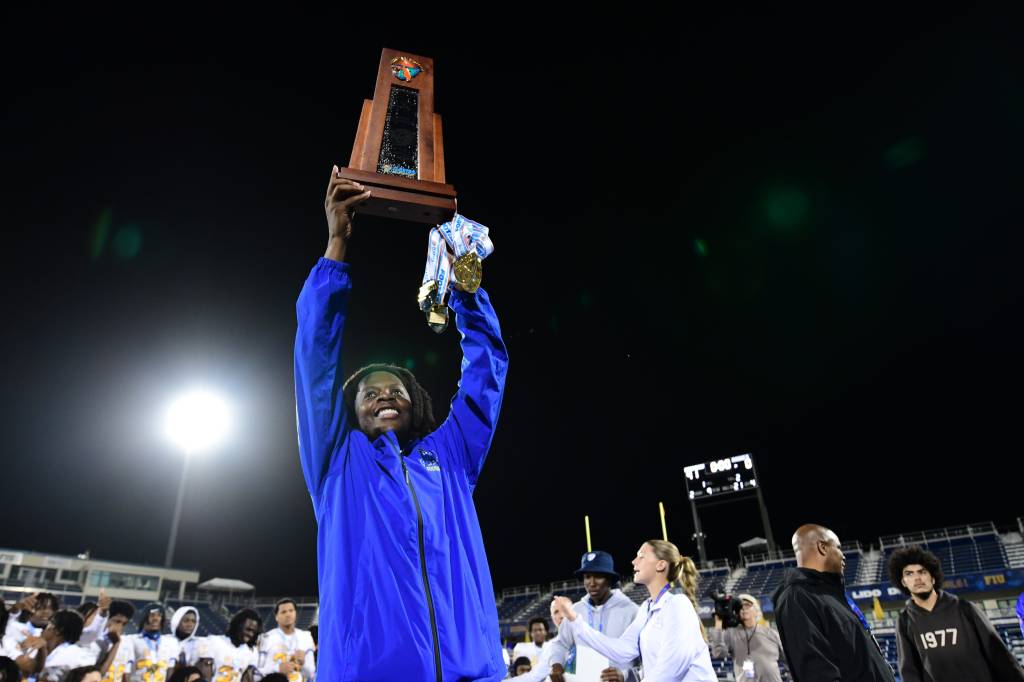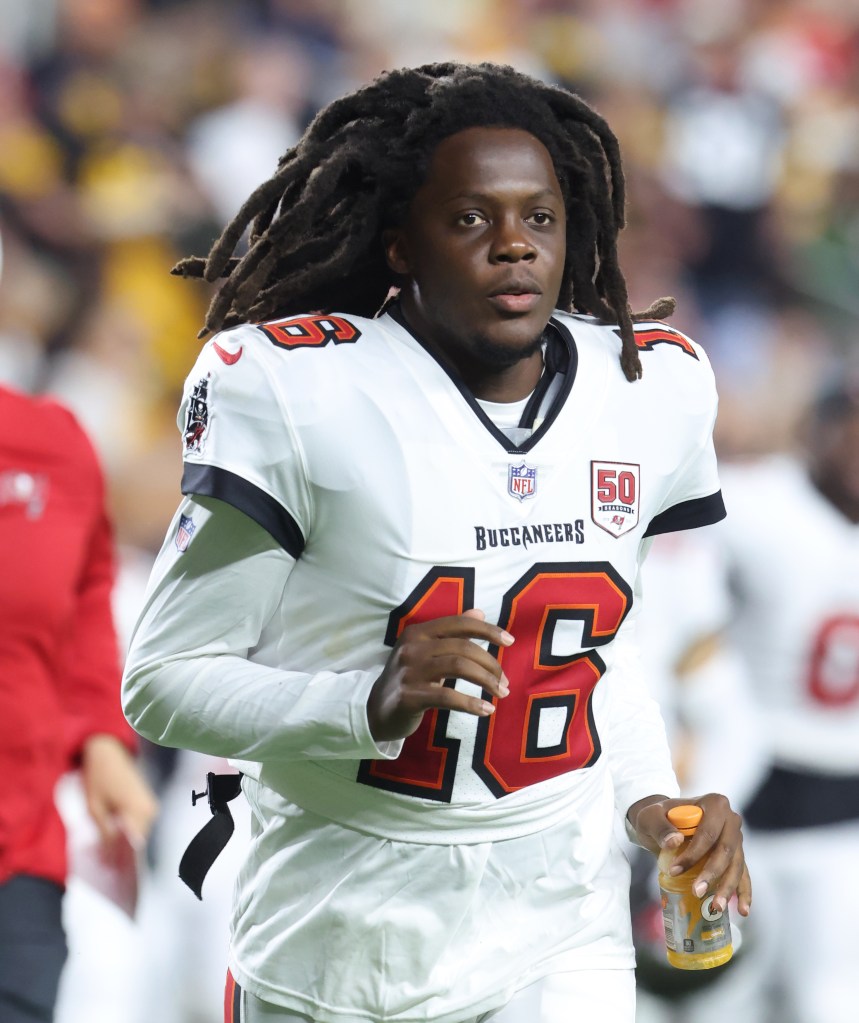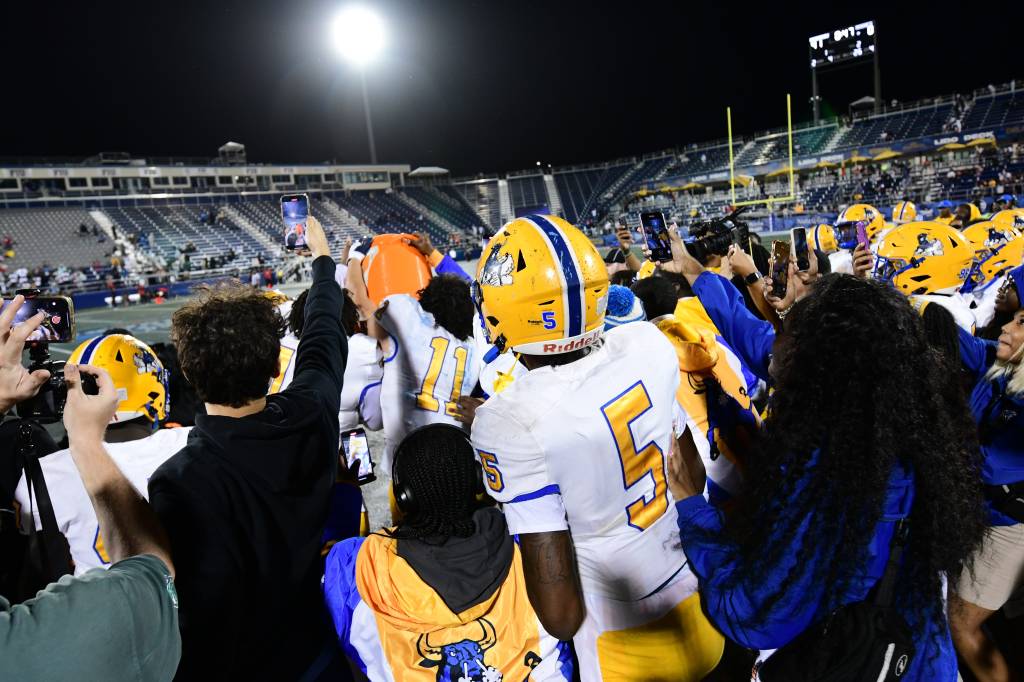Meals, Uber Rides, Athlete Support: The Teddy Bridgewater Situation Explained
Anwar Stetson

The Teddy Bridgewater Controversy
NFL quarterback Teddy Bridgewater has had his name in the news all summer. You may have heard about his controversial suspension from Miami Northwestern High School (Fla.) just months after he coached the team to a Florida state championship. Bridgewater was suspended by the Florida High School Athletic Association (FHSAA) in July for providing impermissible benefits to athletes on the team.
The controversy has continuously caused a stir on social media with many spectators opining that Bridgewater shouldn’t be punished simply for providing for his students. Currently under investigation, Bridgewater has returned to the NFL as a backup quarterback for the Tampa Bay Buccaneers. He has repeatedly expressed his disappointment in the ruling after developing positive relationships with his student-athletes.
But people continue to ask: What is the precedent for the FHSAA to suspend a coach for providing for public school students, when some large high schools rake in millions in donations every year?
The answer: it’s complicated. That’s what one official said.
FHSAA: ‘Examining the Facts’
Craig Damon, executive director of the FHSAA, recently called the investigation into Bridgewater “very complicated” in an interview with USA Today Florida Network.
“We’re still working with the [Miami-Dade Public County Schools] district to try to get some clarity on some things before making a decision on which way we’re going,” he continued.
Per USA Today, Bridgewater said he spent $14,000 of his own money on a player’s training camp. He also admitted to personally spending $700 per week on Uber rides for players, $1,300 per week in athletic recovery services, and $2,200 per week on pregame meals in the 2024 season. Bridgewater earned over $64 million in NFL contracts during his career, according to Spotrac.
There are echoes of this around Florida at other schools. Late last year, private school First Academy in Orlando forfeited eight games, paid $36,000 in fines, and was banned from the playoffs for multiple rules violations, including Uber rides paid to an athlete who was not yet enrolled in the school.
According to the News-Press, the FHSAA is determining which players in Bridgewater’s case received Uber rides.
“At the end of the day, our goal is to examine the facts, determine if a violation occurred and take appropriate actions,” Damon told the outlet last week.
What Makes it Illegal?
According to FHSAA bylaws, impermissible benefits include “Cash or like items, such as credit cards, debit cards, gift cards, gift certificates, coupons or vouchers.” It continues, “gifts of clothing, equipment, merchandise or other tangible items” and “free or reduced-cost transportation,” among other items are in the laws.
Both private and public schools in the state are subject to the same bylaws.
The FHSAA defines an impermissible benefit as “any arrangement, assistance or benefit that is not offered or generally made available to all students and/or their families who apply to or attend a school, or that otherwise is prohibited by FHSAA rules. Receipt of a benefit by a student-athlete or his/her family is not a violation of FHSAA rules if it is demonstrated that the same benefit is generally available to the school’s students or family members and is not based in any way on athletic interest, potential or performance.”
Florida is a High School Powerhouse
It is also illegal for public and private high schools to recruit players in Florida at the high school level “primarily” on the basis of athletics. This is where some folks may find their greatest distaste for the situation.
Florida is a high school sports powerhouse. The state has produced dozens of professional athletes in a multitude of sports. Many of the best student-athletes nowadays attend one of the Sunshine State’s incredibly wealthy prep academies.
For example, IMG Academy sold in 2023 for $1.25 billion. The boarding school specifically focuses on “sports-based education” and houses students from all over the planet who come to the school to become the best athletes in the world.

Current NFL player Daniel Faalele was recruited to the school all the way from Australia to play football. Future NBA star Cooper Flagg came from a small town in Maine to play basketball at private academy Montverde outside of Orlando.
Another academy powerhouse, Prolific Prep, moved campuses from California to Fort Lauderdale this summer.
The IMG Academy Foundation raised $47 million in scholarships for student-athletes to attend the school in 2024. The academy has over a dozen name-brand sponsors. Prep academies like IMG provide housing and top-notch athletic facilities for their students, all of whom play sports.
To further complicate matters, Florida is also one of many states that now allows NIL (Name, Image, and Likeness) deals for high school athletes. Under certain conditions, high school players in the state can profit from their own likeness as long as they do not affiliate their school’s name or brand in said deals.
Putting it simply: It is ok for some Florida high school foundations (under certain conditions) to spend millions per year recruiting, housing, and training players in state-of-the-art facilities. It is ok for a student-athlete (under certain conditions) to make money from playing sports.
But it is not ok for a head coach to directly pay for Uber rides for his athletes to get a ride home from practice. Though Bridgewater is currently suspended, the investigation is ongoing, and a final determination has not been made.
A ‘Father First’
In a since-deleted Facebook post, Bridgewater said he self-reported his expenses to Miami Northwestern High School.
“I’m a father first before anything, and when I decided to coach, those players became my sons,” Bridgewater told reporters during Buccaneers training camp in early August. “And I wanted to make sure that I just protect them in the best way that I can, and I think that’s what came about. Miami Northwestern is in a tough neighborhood, and sometimes things can happen when kids are walking home and different things like that. So I just try to protect them, you know, give them a ride home instead of having to take those dangerous walks.”
Though the area has seen a reduction in its homicide rate, the Liberty City neighborhood where the school sits is infamous as one of the most dangerous areas of Miami.
Bridgewater said that having to leave his students was “difficult.”
“I have so many relationships with those young men down there in South Florida at Miami Northwestern,” Bridgewater said.

“It’s a great group of kids and they see so much hope when they look at me,” he continued. “I always said it’s food for my soul. It’s the way that I feed my soul and allows me to stay young being around those kids. Now that I’m back in the league, it’s actually going to be extra motivation for them as well. Because they’ll get to play a game on Friday night, and probably get to drive across the state and watch the Bucs play and see [me] on the sidelines, like ‘Coach is just continuing to serve as motivation, and continue to influence us in every way possible. He’s showing us that he can make it to the NFL, he’s showing us he can coach, he’s showing the different avenues of life that you can take.’ And I’m hoping they take notice of that.”
More to Come
A journeyman, Bridgewater played a decade in the NFL before retiring in 2024. The former Pro Bowler returned to his native Florida to coach Miami Northwestern, his alma mater.
After winning the Class 3A state championship, the player-turned-coach briefly signed with the Detroit Lions before retiring again. In 2025, he asked for donations for the football team from the local community. Bridgewater volunteered his services, not taking a salary at Miami Northwestern. He claims he is not considered an employee of the school or district.
On August 13, Damon said “we want to do something here in the next week or so,” meaning a final decision may come soon.